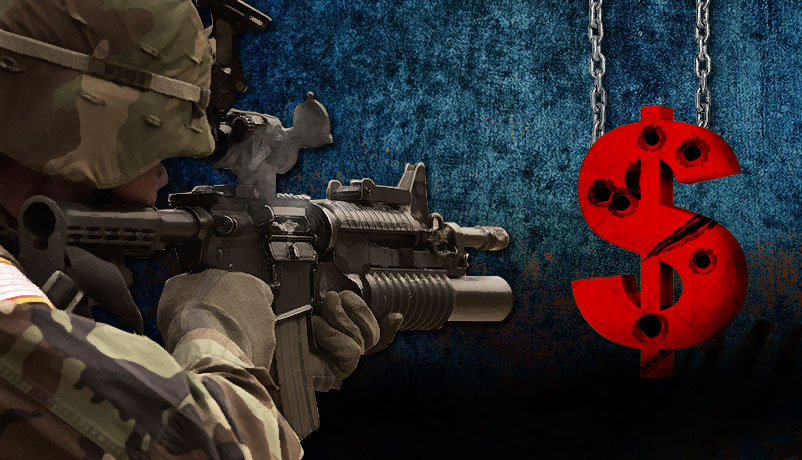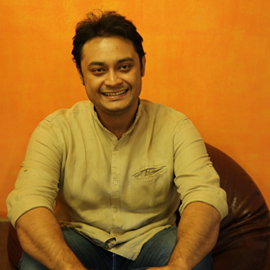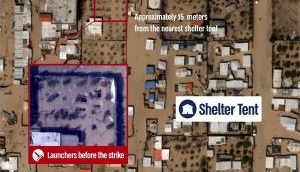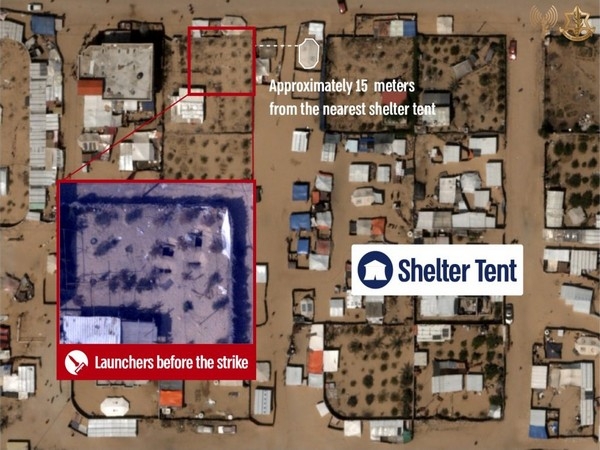14 years since 9/11: the war on terror has cost US $1.6 trillion

Fourteen years ago this day, as hijacked aircraft flew into the World Trade Towers and the Pentagon, modern history took a decisive turn. For the worse, mostly.
9/11, as the attack came to be recorded in public memory, launched the world's sole superpower into what it christened as the War on Terror.
Afghanistan was the first theatre of the war launched in September 2001. The Iraq war was purportedly launched in 2003 to eliminate the "weapons of mass destruction accumulated by the Saddam Hussain regime". But US President George W Bush termed it as "the central front in the war on terror".
The war on terror ended up becoming a series of disparate conflicts - from the borderlands of Pakistan to the deserts of sub-Saharan Africa.
Most are still going on, seemingly endlessly. Some are waged in secret through drones and special forces, while other more conventional ones - Iraq, Syria, Afghanistan - are broadcast into our living rooms.
The wars caused widespread destruction - to life, resources, society, culture, heritage - but also contributed significantly to the emergence of destructive forces such as the ISIS and al-Shabab.
However, the War on Terror didn't spare the US either. In 14 years, it has cost the US thousands of soldiers and trillions of dollars.
This, of course, is not counting the ever burgeoning budgets for defence, homeland security, mass surveillance and the increasing militarisation of police forces.
dollars
- The total cost, according to the National Priorities Project, of the non-secret wars waged by the US since 9/11 in Afghanistan, Iraq and against the ISIS.
- This is twice the market value of Apple, the world's most valuable company.
- To put it in perspective, the US has spent $8 million of taxpayers money every hour to fight these wars.
dollars
- The amount the US taxpayers are paying every hour to fund the war in Afghanistan.
- This sum is enough to provide a year's healthcare to 400 military veterans, many of whom have been documented to have suffered severe psychological damage during these wars.
dollars
- The estimated cost of the Iraq War so far.
- This is over 10 times the net worth of Bill Gates, co-founder of Microsoft and the richest man in the US.
- Alternatively, the money could fund basic healthcare for over 2 million people for 100 years.
dollars
- The money spent by the city of New York on 'homeland security' in 2015.
- With this money, the city could have recruited 5,000 school teachers for five years.
- Since 9/11, US taxpayers have paid $ 6.7 billion every hour for homeland security.
dollars
- Or $615,482 an hour is what American taxpayers are paying for the military action against the Islamic State.
- And as the engagement against IS deepens, this amount is set to see a steep jump.
- America has fought numerous wars, big and small, since its formation in 1776. But in terms of economic cost alone, none beats the post 9/11 military engagement. It has cost nearly as much as the Korean, Vietnam and the first Gulf war combined.
- That's the conservative estimate of total number of civilians who died as a consequence of the post-9/11 wars in Afghanistan, Iraq and Pakistan, from October 2001 to April 2014. It may be as high as 220,000.
- Iraq accounted for the highest number of casualties - with more than 130,000 civilian deaths.
- During this period, around 6,802 military personnel also died along with 344 journalists.
- In comparison, this is the total number of people killed in the 9/11 attack. The economic loss caused by it is around $10 billion.




_251371_300x172.jpg)


![BJP's Kapil Mishra recreates Shankar Mahadevan’s ‘Breathless’ song to highlight Delhi pollution [WATCH] BJP's Kapil Mishra recreates Shankar Mahadevan’s ‘Breathless’ song to highlight Delhi pollution [WATCH]](http://images.catchnews.com/upload/2022/11/03/kapil-mishra_240884_300x172.png)

![Anupam Kher shares pictures of his toned body on 67th birthday [MUST SEE] Anupam Kher shares pictures of his toned body on 67th birthday [MUST SEE]](http://images.catchnews.com/upload/2022/03/07/Anupam_kher_231145_300x172.jpg)




_251372_1280x720.jpg)
_251371_1280x720.jpg)
